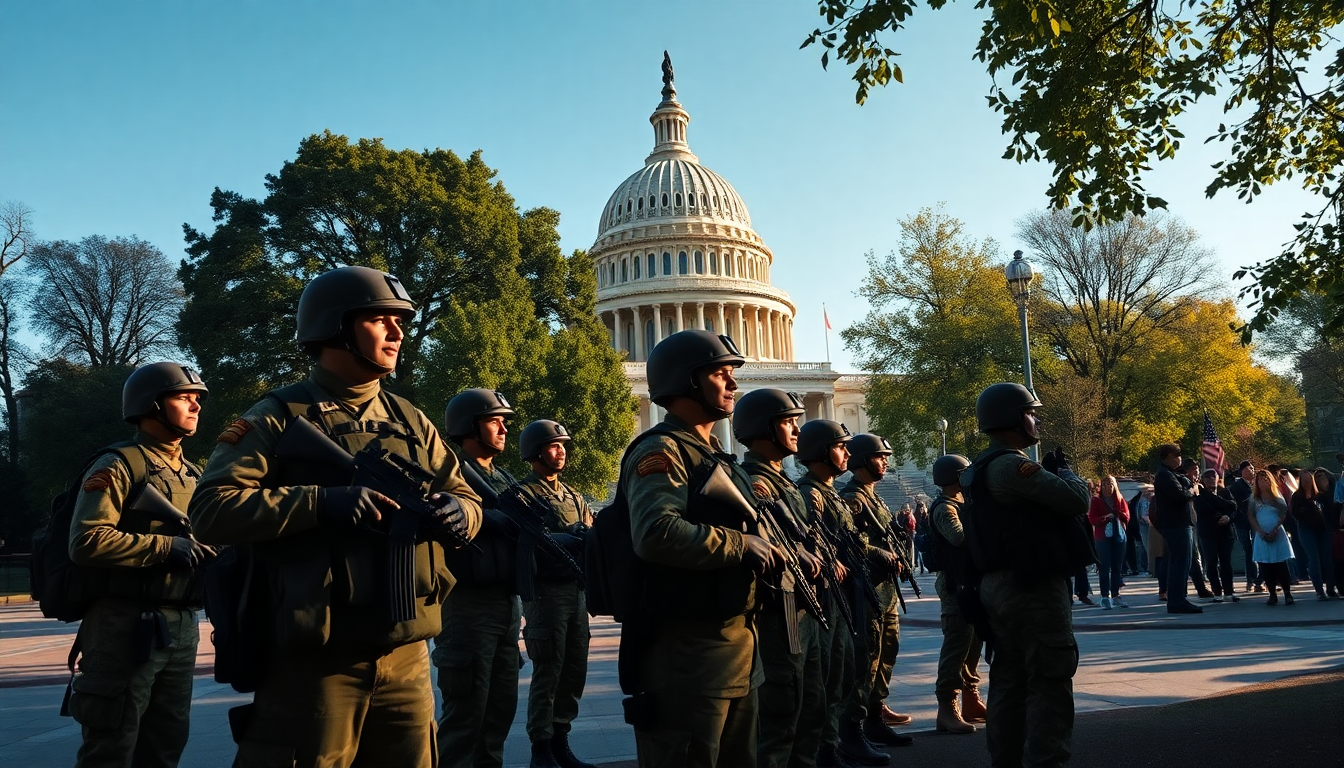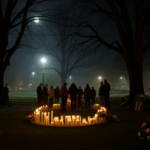Table of Contents
The recent deployment of National Guard members in Washington, D.C., has set off a whirlwind of reactions from locals and onlookers alike. With tensions on the rise and protests erupting against President Trump’s administration, the increased military presence raises some critical questions about governance and public safety in the capital.
So, what does this military presence mean for the future of Washington? Let’s dive in.
The Context of Military Deployment
In response to the escalating tensions in the capital, President Trump has significantly ramped up the law enforcement presence. This decision, following his declaration of a crime emergency in Washington, has left many residents scratching their heads.
The deployment of the National Guard has not only changed the city’s landscape but has also confused tourists and locals alike. With crime rates reportedly declining in recent years, many are left wondering: Is this military presence really necessary?
Residents are voicing their frustrations, feeling that federal authority has overstepped its bounds.
Demonstrations have popped up all over the city, with protesters wielding signs that demand an end to what they see as an aggressive takeover of local governance. The contrast between the military’s visibility and the city’s historically vibrant atmosphere creates a unique tension as locals grapple with the implications of this heightened military presence.
Moreover, the symbolism behind this deployment is hard to ignore. As National Guard members stand guard in popular tourist spots, their presence serves as a stark reminder of the current political climate and the administration’s stance on law and order.
For many, it’s an unsettling sight that stirs up memories of past civil unrest and the federal government’s attempts to assert control over local matters.
Public Reactions and Protests
The public’s response has been anything but uniform. While some residents view the National Guard’s presence as a crucial measure for ensuring safety, others see it as an infringement on their civil liberties.
Protesters have taken to the streets, making their voices heard and demanding accountability from elected officials. Signs proclaiming “Hands off DC” resonate strongly with those who feel their local governance is under siege.
One notable protester, Autumn Tustin, captured the sentiment of many when she described participating in these demonstrations as essential in the current political climate. Her analogy of the situation as “frogs in a boiling pot of water” perfectly illustrates the gradual yet profound changes occurring in governance and civil rights.
As social media buzzes with images and videos of federal agents conducting operations in various neighborhoods, the community grows increasingly alarmed. Incidents of confrontation, like the viral video of a man throwing a sandwich at a federal officer, highlight the heightened emotions surrounding this military presence. The fallout from such actions—job losses and legal repercussions—only adds to the tense atmosphere in the capital.
The Future of Governance in Washington
As Washington navigates the implications of this military presence, a bigger question looms: What does this mean for the future of governance in the capital? The District of Columbia’s unique status, primarily controlled by the federal government, complicates local leaders’ ability to push back against federal directives. Mayor Muriel Bowser has acknowledged that local governance is facing unprecedented challenges.
Given the declining crime rates, Trump’s justification for the increased military presence has come under fire. While the president claims that crime is on the rise, data paints a different picture, showing a significant drop in violent crime rates over the past few years. This discrepancy raises eyebrows about the real motivations behind deploying the military and what it could mean for public trust and safety in the long run.
Ultimately, the delicate dynamics between federal authority and local governance are being put to the test. As the National Guard continues to patrol the streets, residents find themselves navigating the complexities of their rights and safety amidst a backdrop of political tension. This situation serves as a crucial reminder of the fine line between security and freedom in a democratic society. So, how will this all play out? Only time will tell.





